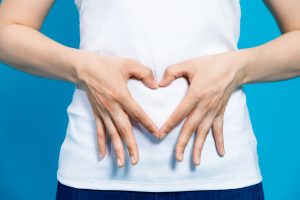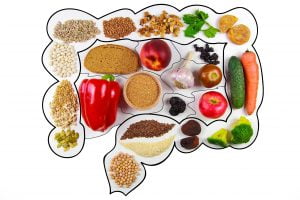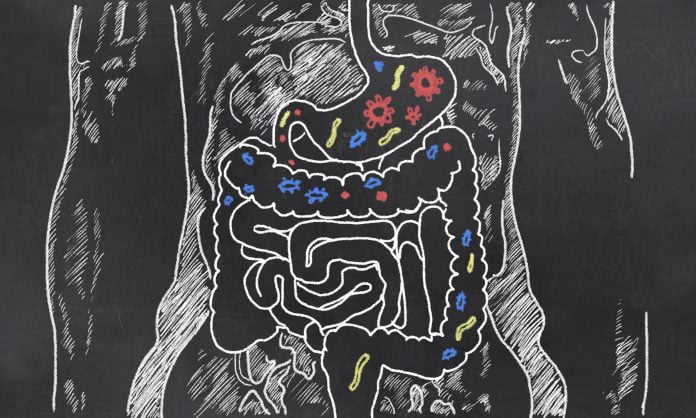Candida is fascinating, with its claimed links to irritable bowel syndrome, tinnitus and high mercury levels, and its ability to shield and protect itself through biofilms in some species.
Mark Webster, integrated health practitioner and owner of Stay Well Pharmacy in Christchurch, New Zealand, tells Retail Pharmacy magazine this month that Candida is often referred to as a fungal infection.
“It’s the most common fungal infection globally in humans, with the most common species being Candida albicans,” he says.
Dr Sarah Brewer in her book Overcoming Candida presents the case for the link between Candida and IBS and how it can be managed.
However, other healthcare professionals are dubious about this link.
In the book Dr Brewer makes associations between irritable bowel syndrome (IBS), gluten, lactose and wheat intolerances. She details how patients can use immunity to combat thrush and intestinal symptoms and to prevent Candida changing from a harmless to an invasive form.
Candida, commonly known as thrush, is a result of an overgrowth of the yeast, Candida albicans, Dr Brewer says.
Candida infections commonly begin after courses of antibiotics, weakened immune systems, diabetes or having medical devices such as urinary catheters inserted.
“They can impact the health of both genders and in children,” Mr Webster adds.
Dr Brewer says that when recurrent Candida is diagnosed, it’s important to exclude diabetes, and to provide appropriate antifungal treatment, with ingestion of probiotics proving helpful.
She highlights that often an incorrect diagnosis of Candida can be made for patients with intestinal symptoms when they could be suffering from IBS, or a lactose or gluten intolerance.

IBS symptoms, which include changes in frequency or form of bowel movements and lower abdominal pain, can initially occur due to food poisoning (25%) or after courses of antibiotics, which can upset the balance of helpful bacteria in the gut and leave room for the growth of intestinal yeasts, Mr Webster says.
Stress, diet (including food intolerances), poor sleep and changes in gut bacteria can all trigger symptoms such as diarrhoea and constipation, cramping and pain, gas and bloating, tiredness, difficulty sleeping, depression and anxiety.
However, an overgrowth of Candida is rarely found within the intestines, except in people whose immune system is badly compromised. According to Dr Brewer, one theory is that the presence of Candida yeasts may trigger immune responses that result in intestinal symptoms similar to those of food intolerances.
“An astounding 178 different proteins that can trigger immune reactions have been identified in Candida species, including proteins in their outer wall and the enzymes they secrete,” she says.
“Although their role is unclear, a review published in the European Journal of Gastroenterology and Hepatology suggested this might explain why intestinal symptoms can worsen after eating mould-containing foods.
“It might also explain why many people with IBS, and those with recurrent vaginal Candida, find probiotic supplements so helpful.”
She says probiotic bacteria secrete lactic acid, which suppresses yeast growth, and also compete for available nutrients and attachment sites on intestinal walls.
“Probiotics also re-inoculate the bowel with friendly digestive bacteria and suppress the gas-forming bacteria that have been associated with some cases of irritable bowel syndrome,” she says.
Helpful nutritional supplements Dr Brewer suggests, include vitamin C, vitamin D, biotin, iron, magnesium, selenium, zinc, artichoke, caprylic acid, co-enzyme Q10, cranberry, curcumin, echinacea, garlic, grapefruit seed, olive leaf, peppermint oil and Siberian ginseng.
Associations between Candida bacteria and IBS tricky
Geraldine Georgeou, an Accredited Practising Dietitian (APD) for 20 years, former board member of the Gut Foundation and co-author of The Gut Foundation Cookbook, warns against making facile links between Candida and IBS and tackling the condition from this association.
She says an antifungal diet could work for IBS patients, keeping in mind that they could have many other conditions, such as celiac disease or a condition that has to be diagnosed via their GP or gastroenterologist.
“I’ve had patients in their 30s who present with something that doesn’t appear to be sinister, such as constipation, who in fact have colorectal cancer, or patients who think they may have overflow diarrhoea but are constipated,” Ms Georgeou cautions.
“This makes it clear the extent to which healthcare professionals have to be mindful as to how long the person has been struggling with the condition and what is actually going on with their health to bring them to the point where they enter a pharmacy and ask for assistance.
“I can’t emphasise enough how much caution should be taken in avoiding the ease of oversimplifying medical conditions.”

Ms Georgeou highlights that a quick means of gaining clarity is to refer patients to their GP for a stool test or to make use of the Microba Insight Test, which comes in the form of a microbiome test kit that provides detailed insights into the microorganisms inhabiting a patient’s gut and how they function.
“It’s a powerful, evidence-based tool that enables patients to learn about their unique microbial community in as-yet-unknown detail and identify dietary suggestions that could improve overall health and wellbeing,” she said.
She points out that IBS could follow a patient undertaking a “crazy diet” with little to no fibre, which results in an imbalanced gut microbiome, adding that the patient could even have a parasitic or bacterial infection in the gut that needs to be medically addressed.
In this scenario, Ms Georgeou says she would work out what fibres the patient needs to consume in their diet and whether they need a prebiotic or probiotic to reset their gut and encourage good gut health.
“Lack of adequate fibre could be the result of following the keto diet, as an example,” she says.
“So here pharmacists could help patients determine whether they’re getting enough of what they need from insoluble to soluble fibre, cereals (low sugar), natural yoghurt and fermented food.
“I advise patients that fruit, and dry fruit, have to be consumed with care, as they’re high in sugar and don’t always provide as much fibre as people imagine, as well as homemade kombucha and fermented food, not to mention ensuring they get the probiotic that’s right for them.”
To read the full feature as it appears in this month’s issue of Retail Pharmacy magazine, visit: retailpharmacymagazine.com.au/magazine.








